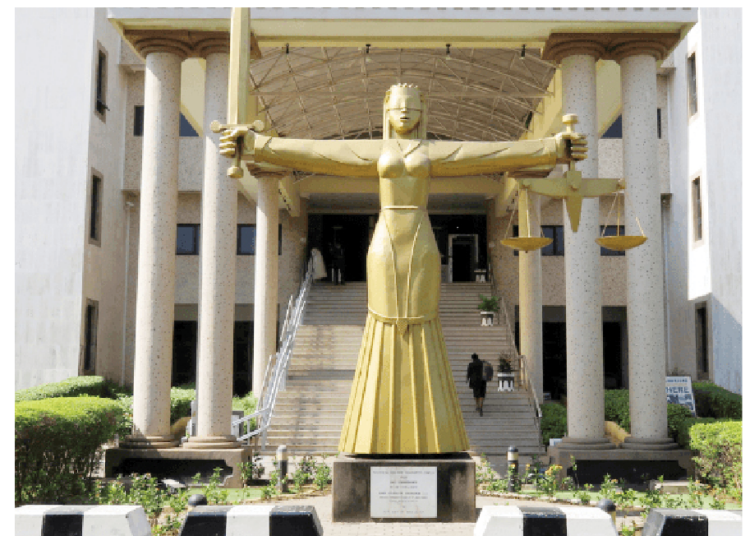Thursday this week marked a milestone in the granting of financial autonomy for 774 local government areas in the country. It has been a titanic but silent battle of many controversies, with officials of LGs playing safe by ensuring they did not draw the wrath of the governors and the federal government. Over 24 years after this unbroken democracy, respite came for the LGs whose predicaments in the hands of some of the governors have been nothing short of daylight robbery.
Fear Of Tomorrow
The verdict of the Supreme Court that granted financial autonomy to the LGs has sparked off controversy, with each of the groups hinging their arguments on the basis of what is accruable to them. The governors are said to be exploring subtle means of avoiding a situation that may strangulate them financially in the future. The federal government has welcomed the judgement. What came close to what may be the mind of governors was re-echoed through former governor of Delta State, Chief James Ibori who described the verdict as an assault on the concept of the federal system as enshrined in the Nigerian Constitution that grants power to states to oversee the affairs of LGs.
How could the states be legally mandated to oversee the LGs, and at the same time be denied control of their finances? Is it possible for man who is in charge of a child be denied the responsibility of having a say in the financial affairs of same child? While this runs against rationality under a Federation that seeks to empower the grassroots, the 1999 Nigerian Constitution gives governors enormous powers more than that of the President, even when a Nigerian President is the most powerful in the world.
Yours sincerely may not be conversant with relevant sections of the constitution that grants supervisory status to states over constitution, however, the fact that states are mandated with the responsibility of conducting local government elections reveals the power and control of states in conducting the affairs of LGs.
Corruption Personified
Even before now, advocates of local government financial autonomy have cried themselves hoarse on the need to emancipate LGs from the clutches of states. No don’t, some governors have turned the LGs into cash cows. Thus, it is manifestly clear that without the intervention of some governors, the LGs would have been worst off in terms of checkmating financial corruption. That is not to state that freedom for LGs is not desirable. Considering the footprints of democracy and hair-raising fraud that has permeated public service, the inscrutable heists recorded in some of these LGs would have drained the country of hope. When former President Olusegun Obasanjo in 2005 hilariously declared that he only knew he had about 774 thieves in charge of the third tier of government, he was simply underscoring the monster of corruption that had taken over the local government system.
With a benefit of hindsight, rot and corruption have built a solid defense, and while in the past, contracts awards required 30 to 40 percent kickback, now the contracts are not executed, but the money is released and shared among collaborating agents. That is the tragedy of all the three tiers of government that is crumbling the country. To curb the excesses of those in charge of the third tier, the state governments, under whom the local government areas are under, has always found it expedient to checkmate the councils, especially in executing joint projects, therefore prompting the setting up of Joint Account Committees (JACs between states and local councils on funding key projects.
Not Yet Uhuru
Of course, some of the states have been found wanting in management of these joint accounts, with some of the LGs reduced only to centres of salary payment at the end of the month. There have been instances where some of these councils owe workers’ salaries of many months and, in some instances years. All these have contributed to portraying the LG system as most battered and hopeless in terms of delivering the dividends of democracy.
During the initial year of this steady democracy, some governors were known to only pay salaries and logistics as they demanded LG chairmen to sign a piece of paper that they have been paid their monthly allocation. Any local government council chairman unwilling to sign was shown the way out. Thursday’s verdict of the Apex Court that granted financial autonomy to local governments may not formally resolve the problem, but the judgement marks the commencement of the battle to extricate the powers of governors from controlling the monthly allocation accruing to local government areas. Since the conduct of LG elections are still vested in the hands of the states, governors may resolve to only support chairmanship candidates that accept collaborative efforts with states through joint ventures. To politicians that are in the thick of the machination ahead of 2027, the verdict may have provided an opportunity for the federal government to unleash its dreaded might in some states that are battlegrounds in swinging electoral victory.
The fallout of the Apex Court verdict that grants autonomy may lead to uncontrollable corruption which could force the anti-graft agencies to open offices in every local government area. When the office of the Citizen is not in place in a democracy, the ballot system is imperiled. Fixing the LGs without dumping the 1999 Constitution that has legalized the flawed Nigerian State is an exercise in futility.





